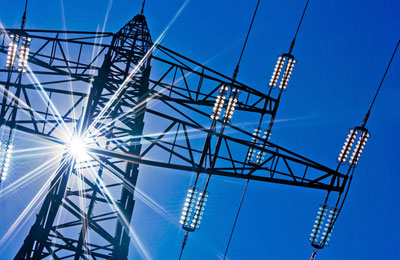
Iraq signs deal to import Iranian gas for power
Baghdad, July 22, 2013
Iraq has signed an agreement to import natural gas from Iran for power generation, the electricity ministry said on Monday, in a move that could interfere with US efforts to cut off funds for Iran's nuclear development.
Under the contract, Iran will install a pipeline into Iraq and supply it with 850 million cubic feet of gas that will be used to feed three power plants in Baghdad and Diyala provinces, the electricity ministry said.
The deal was signed in a closed-door ceremony in the Iraqi capital Baghdad late on Sunday between Iraq's electricity minister Kareem Aftan and Iranian oil minister Rostam Qasemi. There was no media access to the ceremony.
Sanctions to prevent Iran exporting its oil and gas are one of the main tools Washington is using to choke off funding to Tehran's nuclear program, which it suspects is aimed at developing the capability to make nuclear weapons.
Iran says the nuclear program is for generating power and medical devices.
Iraq will buy the contracted gas according to international prices each day from Iran under the four-year deal, which could be extended, generating 2,500 megawatts.
The 42-inch 220 kilometre gas pipeline will pass through Iraq's Mansuriyah gas field near the Iranian border, through the volatile province of Diyala to supply a nearby power station and reach Baghdad, where it will branch into two lines that will supply two power plants.
The pipeline is expected to be completed in two months and is being built by Iran Consulting Group (ICG) on the Iraq under a contract worth $365 million, the electricity ministry said in a statement.
"The pipeline section inside Iraq was supposed to be completed last month, but the unstable security situation in Diyala province and property issues have delayed the project which is expected to finish after two months," the statement said.
Almost 10 years after the U.S.-led invasion that toppled Saddam Hussein, investment is needed in most of Iraq's industries, not least power generation, which produces just 8,800 MW of the 14,000 MW needed.
The dilapidated national grid supplies only a few hours of power a day, leaving Iraqis to swelter in the summer months, when temperatures can top 50 degrees Celsius.
Existing U.S and European sanctions cover investment in Iranian gas, but do not specifically outlaw imports. Other countries that import Iranian oil, like South Korea, must make continuous cuts to keep getting six-month waivers on the U.S. sanctions.
Iran and Iraq fought an eight-year war in the 1980s in which hundreds of thousands were killed, but ties have improved since Saddam was ousted by the U.S. invasion and a Shi'ite-led government came to power in Iraq. – Reuters







